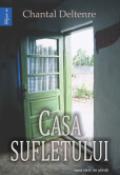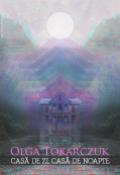
A graduate of the English-Norwegian bachelor’s programme (2009) and of the Irish Studies master’s programme (2011) at
Babeș-Bolyai University, Raluca Răduț is the author of the first PhD thesis, not only in Romania but in Norway as well, devoted entirely to the work of contemporary Norwegian poet Jan Erik Vold. The doctoral dissertation entitled The Poetry of Jan Erik Vold and the Norwegian Lyric Modernism in the 1960s has now become available to the Romanian audience with its publication in the Nordica collection of Casa Cărții de Știință Publishing House. Raluca Răduț’s research has been part of a doctoral project focussing on contemporary Norwegian authors such as, among others, Lars Saabye Christensen, Jan Erik Vold, Jon Fosse, that I’m carrying out as doctoral research supervisor for the School of Literary and Linguistic Studies at Babeș-Bolyai University.
Raluca Răduț’s academic prowess as author of this excursion into Jan Erik Vold’s poetry is all the more valuable as it is solidly founded on thorough knowledge of the Norwegian language and literature, which has allowed her access to both primary and secondary literature on the subject in the Scandinavian languages. Moreover, over the course of two doctoral mobility fellowships at the Arctic University of Norway in Tromsø (UiT), supported by the Norwegian Centre for International Cooperation in Education (SIU) and by EEA grants, the author has enjoyed the research support and guidance of Professor Henning Wærp, PhD, a specialist in contemporary Norwegian poetry, who has also attended the dissertation as member of the doctoral committee. The author’s interview with poet Jan Erik Vold, included in the present volume and conducted during one of the doctoral fellowships in Norway, represents in itself a significant contribution to the scholarly research of Jan Erik Vold’s poetic world, as remarkable as the analysis of some of his poems in the original language, which the author has also translated into English.





































